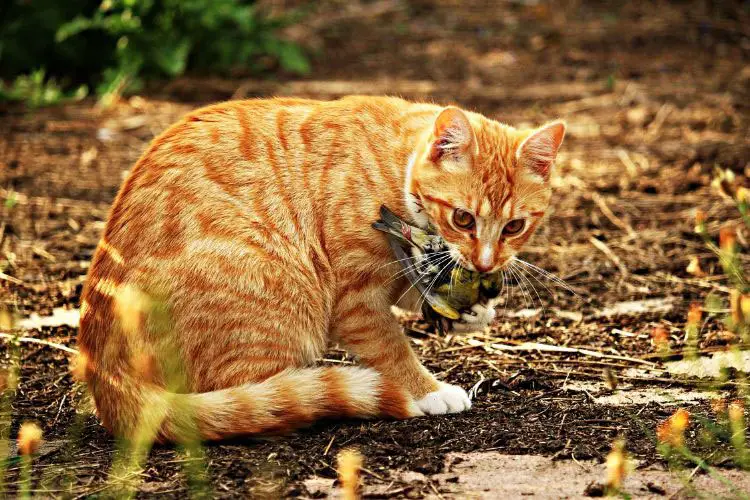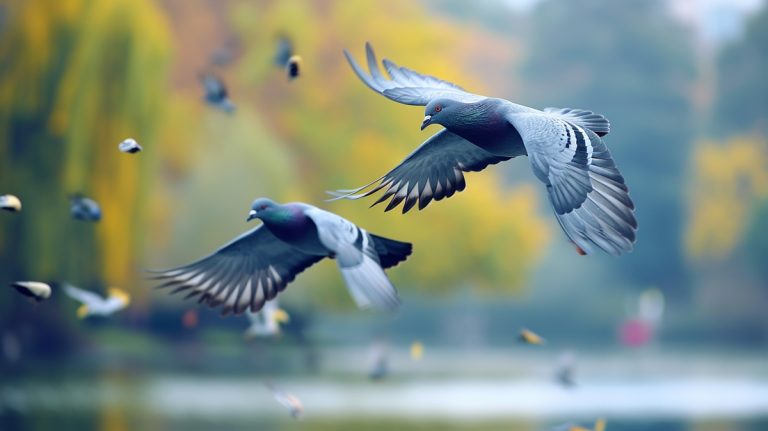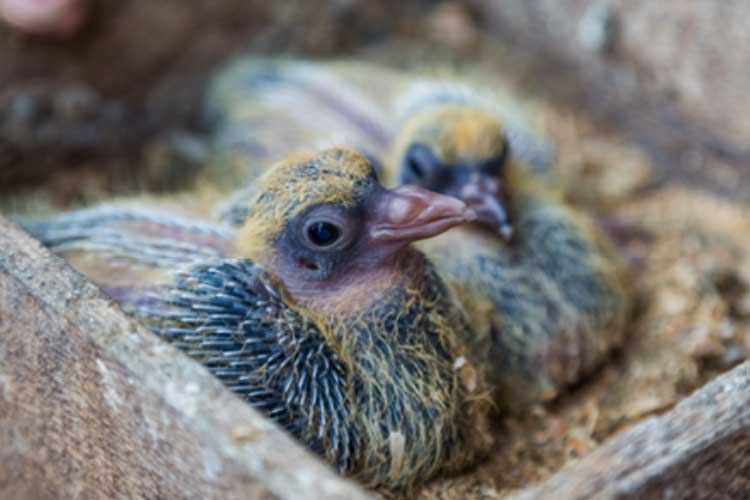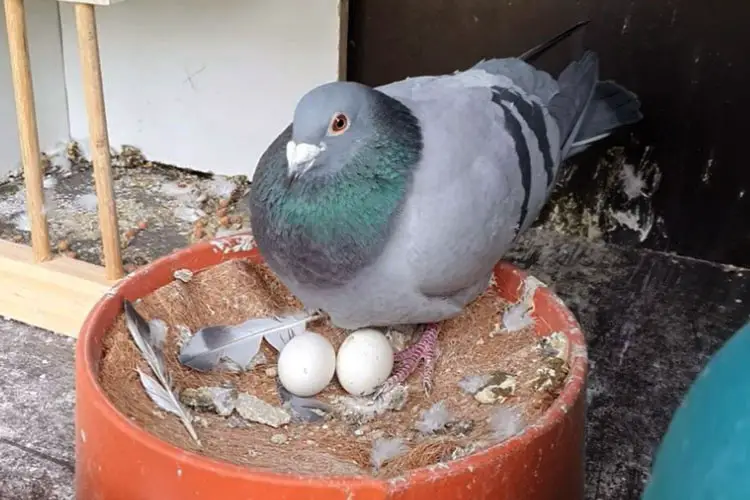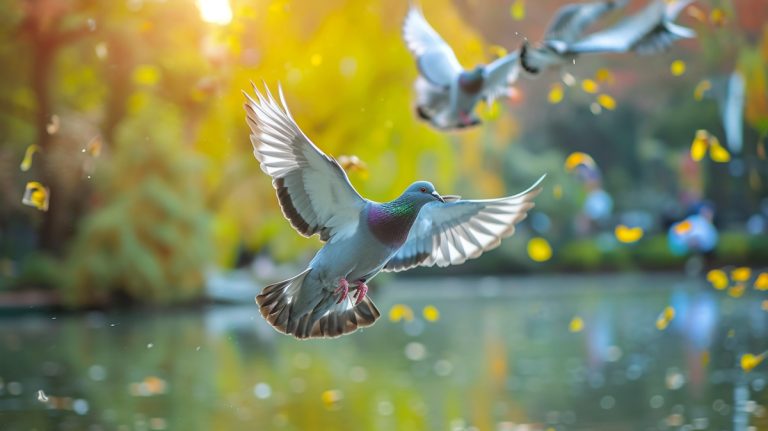How Fast Can A Pigeon Fly? We compared 5 Common Breeds
If you have been wondering how fast pigeons fly, you’ll find this guide helpful. Racing pigeons, despite their humble appearance, are remarkably fast fliers. These birds possess exceptional navigational skills and incredible speed, which makes them some of the fastest birds on the planet today.
So, how fast can a pigeon fly? The average speed at which a pigeon can fly ranges from 50 to 60 miles per hour (i.e., 80 to 97 kilometers per hour). Higher speeds of up to 92.5 miles per hour (148.9 kilometers per hour) have also been recorded for these birds. However, how fast a pigeon can fly is usually affected by a variety of factors such as health, age, and environmental conditions.
In this article, we’ll delve into more details about how fast pigeons can fly. We’ll look at the average speed these birds have recorded and compare the speeds of some of the common breeds of pigeons. We’ll also discuss various factors that affect the pigeons’ speed and other related info you need to know.
How Fast Can a Pigeon Fly?
| Pigeon breed | Average Flying Speed (mph) | Average Flying Speed (km/h) |
|---|---|---|
| 1. Racing Homers | Up to 90 mph | Up to 145 km/h |
| 2. Homing Pigeons | 50-60 mph | 80-97 km/h |
| 3. Wood Pigeons | Up to 77.6 mph | Up to 124 km/h |
| 4. Clay Pigeons | 40 to 70 mph | 64 to 112 km/h |
| 5. Tipplers | 40-50 mph | 64-80 km/h |
Pigeons (racing pigeons, in particular) are great flyers. As we have just hinted above, the average speed at which these birds can fly is around 50 to 60 miles per hour (i.e., 80 to 97 kilometers per hour).
However, when the conditions are favorable, you can expect these flyers to hit even higher speeds.
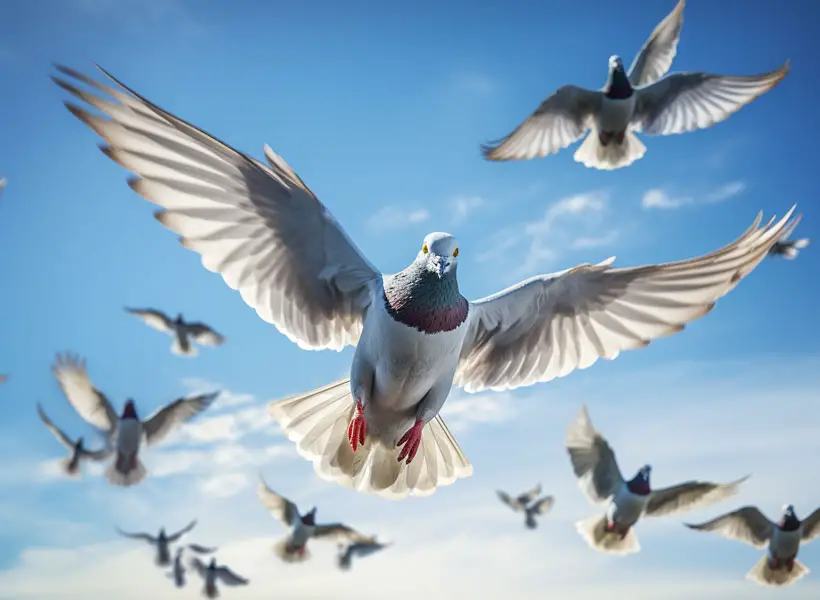
In some cases, pigeons have been shown to fly at higher speeds of up to 77.6 mph (124.9 kilometers per hour) or 92.5 mph (148.9 kilometers per hour). And they can manage a distance of between 600 and 700 miles in a single day.
According to Guinness World Records, the highest recorded race speed for a pigeon is 177.14 km/h 110.07mph. This occurred in the East Anglian Federation race, which took place on 8 May 1965 in East Croydon, Surrey.
The website states that the 1428 birds involved in the race were backed by powerful south-southwest wind.
They go ahead and state that it’s unlikely a pigeon will exceed 96 km/h 60mph when flying in windless conditions.
It shouldn’t come as a surprise that pigeons can achieve such incredible speeds. These birds belong to the Columbidae family and have sturdy bodies, efficient respiratory systems, strong wing muscles, and the ability to catch favorable winds.
All these features make them well-suited for covering long distances at high speeds.
However, as you have seen in our comparison table above, the flight speed for pigeons can vary from breed to breed, with the homing racers being the fastest.
Even among the homing racers, the speed can vary from individual to individual based on several factors we’re going to discuss later in our next section.
Factors Affecting Pigeon Speed

Here are various factors that are likely to affect how fast a pigeon flies:
Wind conditions
Wind is one of the key factors affecting the pigeon’s speed. To be precise, the wind direction and speed can either hinder or enhance the bird’s flight capabilities.
Tailwinds, which blow in the same direction as the bird, can help enhance the bird’s flight and even enable them to achieve higher speeds with much less effort.
Headwinds, which flow in the opposite direction to the pigeon flight, usually require more energy and effort. When faced with headwinds, pigeons may slow or struggle to maintain their usual flying speeds.
As for crosswinds, which blow perpendicular to the bird’s path of flight, they may make it deviate from its intended course.
As a result, the birds may need to make adjustments to help them maintain their desired direction and speed, thus affecting their flight speed.
Health
The pigeon’s overall health will also play a crucial role in its overall flight speed capabilities.
A healthy pigeon is more likely to obtain higher speeds compared to an ailing pigeon which may experience a decline in its flying performance.
A healthy pigeon should have well-developed muscles, optimal feather condition, and a sound cardiovascular system and can easily achieve and sustain higher speeds during flight.
We advise you to feed your birds a healthy and balanced diet, show them proper care, and regular checkups. All these are essential to maintaining your birds’ health and ensuring they perform at their best.

Age
The age of the pigeon can also significantly influence its flying speed. The bird’s physical performance and flying performance tend to change as it becomes older.
Generally, young pigeons tend to exhibit high energy levels and are usually more agile.
However, they do not have the experience and wear that come with extended flights, and their feathers and muscles are in prime condition. Nevertheless, young pigeons are generally faster than older pigeons.
As they transition to adulthood, the pigeons are still able to maintain high flight speeds and endurance. At this point, they have honed their navigational skills and gained a wealth of experience.
Elderly pigeons have deteriorated physical condition; their feathers are not well maintained and their ulcers may have lost some strength. This leads to decreased flying speed.
Elderly pigeons may also be more cautious during their flights, which further affects their overall speed.
Training and experience
Domestic pigeons, just like athletes, improve their flying skills with continued training and experience.
By undertaking your flock through regular exercises, they’re able to build stronger muscles and build endurance. This enables them to achieve faster flight speeds and cover long distances.
Regular training also helps your pigeons learn navigational skills. This enables them to stay on course during a race and maintain their flight speed.
With every flight and return to their lofts, pigeons accumulate navigational experience. This becomes even more refined over time, and the birds can select optimal flight paths while maintaining top speed.

Experience also enables the birds to adapt to various environmental conditions, develop mental toughness, and even develop race strategies.
This makes them fully prepared for flight races and are able to cover way higher distances compared to pigeons with less training and experience.
NOTE: The popular opinion out there that racing pigeon speed is determined by body measurements and live weight has been debunked in this study. However, the researchers agree that the body chest depth, wing length, and body weight contribution to the birds’ flying success are imaginable and require further research.
Pigeon speed calculator
If you’re wondering how to calculate racing pigeon speed, this is your part. A typical pigeon speed calculator takes into account the distance covered by the pigeon and the time it takes to cover the distance.
Therefore, to calculate pigeon speed, you use this formula:
Pigeon speed (in miles per hour) = Distance (in miles) / Time (in hours)
During the race, the competing birds are usually banded and then liberated together by a starter who then notes down their release time.
The pigeons then ascend rapidly, get oriented, and then head towards their lofts.
As they enter their lofts, the bands on their legs are then removed and put in a timing device to indicate their arrival time.
The pigeon distance is then divided by the time taken to help determine which bird moved at the fastest speed. (Source).
How Fast Can a Pigeon Fly in a Day?
A healthy pigeon can fly at a speed of 50 to 60 miles per hour (80 to 97 kilometers per hour) in a single day.
In optimal conditions, the racing pigeons can fly even faster, potentially covering hundreds of miles in a single day
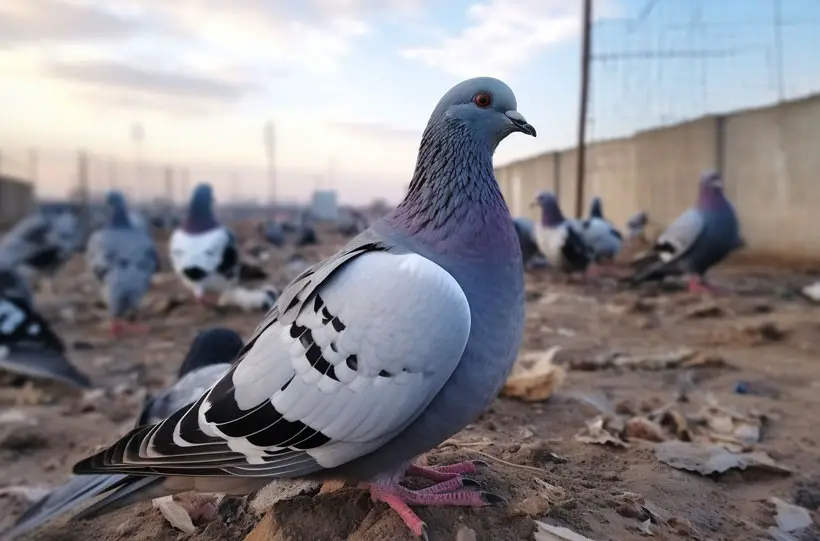
The racing pigeons’ remarkable homing instinct enables them to swiftly return to their lofts, making them one of the fastest birds when it comes to daily speed flight.
However, keep in mind that the distance a pigeon can cover in a day is still subject to factors such as breed, health, age, training and experience, and weather conditions.
How Long can a Pigeon Fly without Stopping?
A pigeon can fly for up to 13 hours non-stop. These birds are known for their remarkable endurance plus exceptional navigation skills.
This enables the birds to stay airborne for long hours and cover long distances without rest.
Pigeons have exceptional long-distance flight capabilities and can fly for extended periods of time without making stops. This is especially the case when they’re on a mission to return to their lofts.

However, keep in mind that the exact duration pigeons can carry out a continuous flight can vary depending on factors such as the pigeon’s age, health, breed, and environmental conditions.
Overall, different pigeons have been observed flying for up to 12 hours or more while covering distances of up to hundreds of miles in a single flight.
Are Pigeons The Fastest Bird?
Despite their ability to achieve such exceptional; flight speeds, pigeons aren’t the fastest birds around.
At the time of writing this article, the title for the fastest bird in the world goes to the peregrine falcon.
The bird has been observed hitting up to 240 miles per hour (386 kilometers per hour) when making a hunting dive to catch its prey.
This makes it the fastest bird in its kingdom, and the fastest animal on the planet!
Watch the video below of the falcon making this super-speed dive:
Video:
FAQs:
Pigeons can achieve high flight speeds due to their streamlined bodies, lightweight and sturdy bodies, and efficient respiratory and digestive systems. All these enable them to achieve swift and sustained flights.
A wooden pigeon, also known as a common pigeon, has been observed to fly for up to 77.6 miles per hour.
Conclusion
There’s no denying that pigeons are among the fastest birds on the planet. They can achieve impressive speeds of between 50 and 60 miles. And in ideal conditions, they have displayed the ability to move even faster and achieve record speeds of up to 92.5 miles per hour. Some of the fastest birds that have participated in pigeon races have even achieved quite high speeds. They have also shown remarkable endurance, as they can fly for up to 12 hours non-stop.
However, keep in mind that the bird’s speed is subject to several factors such as wind direction, age, health, training, and experience. The breed also affects the bird’s speed, with racing homers being the fastest type of pigeon. Birds that have undergone proper training and younger birds also tend to perform better than untrained and elderly ones.

